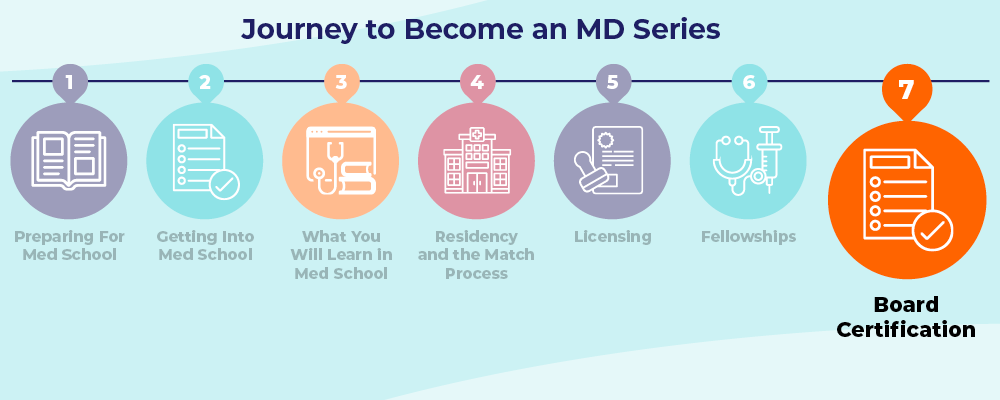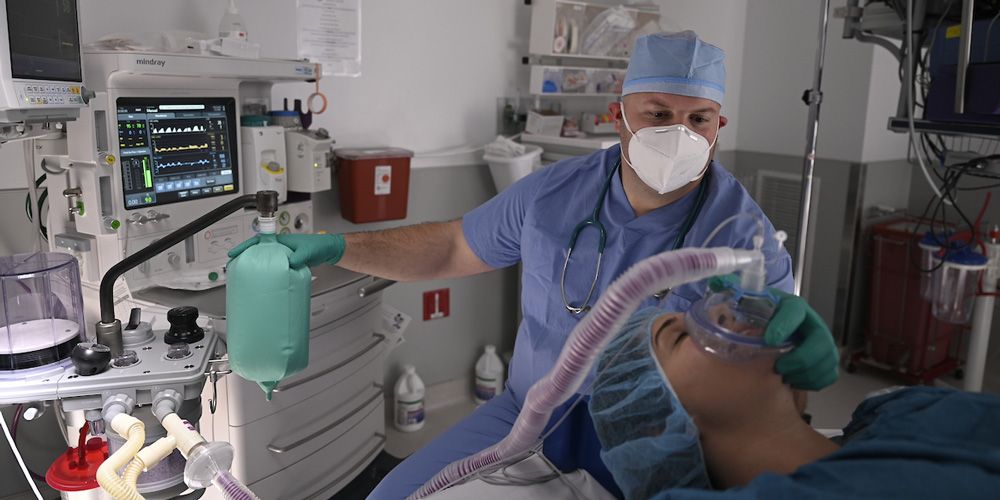
After completing medical school and residency training, many doctors begin to pursue medical board certification to showcase their expertise in a particular specialty during this rigorous process.
Why do doctors get certified?
Doctors pursue board certification for several reasons. It serves as a mark of excellence, indicating that they have met the highest standards in their field. Certification can enhance a doctor’s credibility and trust with patients and peers.
In addition to the reputation enhancement, many hospitals and insurance companies require board certification for granting hospital privileges and hiring. In that sense, a physician getting board certification can be a crucial step for career advancement.
The board certification process
Once you earn your medical degree and complete postgraduate training, you must provide assessment letters from your residency program and secure an unrestricted medical license. Once you have that, you are then eligible to sit for a certification exam.
Depending on the specialty, certification is conducted by the corresponding specialty board, such as the American Board of Internal Medicine (ABIM) or the American Board of Surgery (ABS). These boards ensure that the certification process meets high standards of quality and fairness.
To become board certified, you must pass both a comprehensive written examination that assesses your knowledge and skills and an oral exam or practical assessment, depending on the specialty.
Some doctors choose to become certified in more than one specialty. Every journey is different, but be sure to factor in board certification in your journey to MD.
Certification in the United States and Canada
An important milestone for both, the medical board certification is similar in the United States and Canada. There are different certifying bodies, and some differences in maintenance certification.
In the United States, board certification is specialty-specific. It includes ABIM, ABS, American Board of Medical Specialties (ABMS) and the American Osteopathic Association (AOA).
In Canada, the Royal College of Physicians and Surgeons of Canada (RCPSC) oversees the certification process for specialists, while the College of Family Physicians of Canada (CFPC) manages certification for family medicine.
Due to distinct regulatory environments and healthcare systems in each country, the certification maintenance process is different in both countries. US physicians often engage in Maintenance of Certification (MOC) programs, which involves ongoing learning and periodic assessments. In Canada, physicians participate in the Maintenance of Certification Program (MOCOMP), which focuses on continuing professional development without periodic exams.
See board certification in your future?
Getting board certified is a natural extension of residency and medical specialty training. For a detailed look at board certification and how it fits in the medical training process, skim through these selected SGU blogs.
- What does ‘board-certified’ mean? Clarifying this physician credential
- 5 other FAQs about this MD training
- What to expect as a resident doctor: A closer look at medical residency
- The international student’s guide to becoming a doctor in the US
- The international student’s guide to becoming a doctor in Canada


